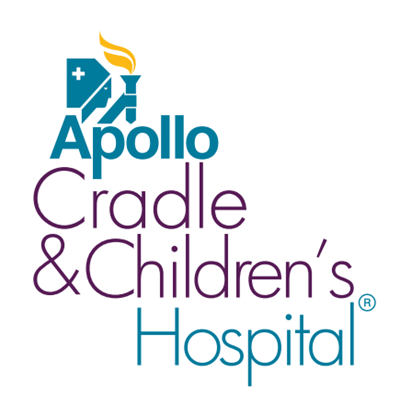Pre-eclampsia screening is important to women's health care, especially during pregnancy. It involves identifying risk factors and testing for protein in the urine. Early detection can lead to timely intervention, helping to reduce serious health risks for both mother and baby. With appropriate screening and management, pre-eclampsia can be successfully managed. This website provides an overview of pre-eclampsia screening and explains how it works in detail. With the right knowledge, pregnant women can ensure they receive the best possible care throughout their pregnancy.
What is Pre-Eclampsia Screening?
Pre-eclampsia screening is a way of detecting pregnancy disorder pre-eclampsia. It involves monitoring a pregnant woman's blood pressure and urine protein levels and taking samples of her blood to test for certain markers. If these tests indicate an increased risk of pre-eclampsia, the woman may be monitored more closely or offered medication to reduce her risk. Early detection of pre-eclampsia can help prevent serious complications for both mother and baby and enable timely intervention to improve outcomes.
What are the different types of Pre-Eclampsia Screening?
There are various types of Pre-eclampsia screening available. These include blood tests to measure kidney, liver, and platelet function and urine tests to check for protein. Ultrasound scans can also assess placental health and the development of the baby's organs. A Doppler scan can monitor blood flow in both mother and baby. Sometimes, a biophysical profile or non-stress test may be performed to assess the baby's well-being. Additionally, doctors may recommend regularly monitoring a patient's blood pressure and urine protein levels throughout pregnancy.
When should one see a doctor for Pre-Eclampsia Screening?
It is recommended that pregnant women should see their doctor or midwife for Pre-eclampsia screening at the start of pregnancy and then again at 28 weeks. Additional screening may be necessary if the woman has risk factors like diabetes, high blood pressure, obesity, or a family history of Pre-eclampsia. If symptoms such as intense headaches, visual disturbances, reduced urine output, nausea, vomiting, and swelling occur during pregnancy, a medical professional should be consulted immediately.
How can one prevent Pre-Eclampsia?
The best way to prevent Pre-eclampsia is to detect it early. Regular check-ups with a doctor throughout pregnancy can help identify potential risks and allow for proper management of the condition. It is important to be aware of the symptoms so that medical advice can be sought immediately, such as headaches, vision problems, and swollen hands or feet. Additionally, pregnant women should maintain a healthy lifestyle by eating a balanced diet and exercising regularly. Taking supplements like folic acid may also reduce the risk of developing Pre-eclampsia.
How should a patient prepare for the Pre-Eclampsia Screening?
Before undergoing Pre-eclampsia screening, it is important to fast for 8 hours before the test. During this time, you should avoid food and drink, including water. It is also advisable to wear comfortable clothing and shoes on the day of the test, as you may be required to walk around during the assessment. It is a good idea to bring a list of any medications you are taking or have taken. If applicable, bring your partner with you for emotional support and participate in any discussions. Finally, it is recommended that you arrive at least 15 minutes before your appointment time.
Conclusion
Pre-eclampsia is a serious condition that can have serious and even fatal consequences for both the mother and baby. Screening for pre-eclampsia is an important step in monitoring maternal health during pregnancy, as early detection of the condition can allow for timely intervention and improved medical outcomes. Pregnant women need to discuss pre-eclampsia screening with their doctor or healthcare provider to decide the best course of action for them and their baby. By taking proactive steps to screen for pre-eclampsia, mothers can ensure they receive the care they need to have a healthy pregnancy.
Request an appointment at Apollo Cradle, Hyderabad - Kondapur. Call 1860-500-4424 to book an appointment.
Pre-eclampsia is associated with certain risk factors, including being pregnant for the first time, having a family history of pre-eclampsia, carrying multiple babies, having diabetes or hypertension before pregnancy, and being 35 or older.
Pre-eclampsia is usually diagnosed during routine prenatal care visits in the second half of pregnancy. Symptoms can occur earlier than this, however, so it's important to be alert for any signs or symptoms that may indicate the presence of pre-eclampsia.
Treatment for pre-eclampsia depends on how far along the pregnancy is and how severe the condition is. In some cases, bed rest or hospitalization may be necessary; in other cases, medications may be prescribed to help manage symptoms such as high blood pressure and protein in the urine.
Yes; if left untreated, pre-eclampsia can lead to serious health complications for both mother and baby, including premature birth and low birth weight, and placental abruption for the mother.
Our Doctors
Treatments
- Blood Tests
- Down's Syndrome Screening
- Early Anomaly Scan
- Fetal Anomaly Scan
- Fetal Echocardiography Scan
- Fetal Ultrasound
- Fetal Well-Being Scans With Fetal Doppler
- Nuchal Translucency (NT Scan)
- Pre-eclampsia Screening
- Pre-Natal Screening & Test
- Screening Test For Maternal Infections
- Surveillance And Monitoring Of Twin Pregnancies
- Tests For Thalassemia And Sickle Cell Disease
- Viability Scan

 95 Patient Satisfaction Score
95 Patient Satisfaction Score


